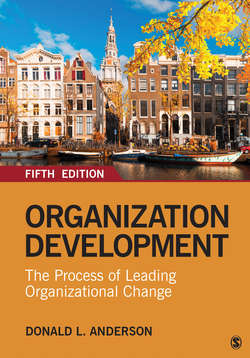Читать книгу Organization Development - Donald L. Anderson - Страница 56
На сайте Литреса книга снята с продажи.
Authenticity, Openness, and Trust
ОглавлениеAccording to Burke (1977), in a review of organization development trends, authenticity was on its way to overtaking democracy as a primary value in the field. When we create competitive environments, organizations develop as contexts in which it is valued and rewarded to withhold information or mislead to gain status and authority. Collaborative practices cannot succeed in that environment. Instead, they demand that we act in an authentic manner. Being authentic means being straightforward, genuine, honest, and truthful about one’s plans, opinions, and motivations. This has implications for how managers communicate with employees, for example, in providing an honest explanation for a project (what the project is intended to accomplish and why) as well as one’s own opinions and beliefs about it. Authentic leadership demands consistency in words and actions as followers look to leaders’ behavior to assess whether their talk is forthright and can be trusted (Goffee & Jones, 2005). Leaders demonstrate trust by giving employees information; explaining organizational direction, values, principles, and rationales; including them in dialogues and discussions; and allowing them to make decisions. This value applies not only to organizational members but also to OD practitioners, who must be authentic with clients in order to expect the same in return. This means confronting clients where appropriate and being honest with the client in the assessment of the data and one’s own feelings.
No intervention or organization holds to all of the values listed here as static entities. In fact, it is probably not useful to think of values as categories, but instead to think of them as a project or objective. Many practitioners think of OD values not as states (e.g., an organization is or is not participative, is team-oriented or individual-oriented), but rather as a continuum or direction. They represent movement away from traditional notions about organizational bureaucracy and human behavior (like Theory X, discussed in Chapter 2) and toward alternative humanistic views about individuals and groups. Any consulting engagement or intervention strategy successfully modeling OD’s core values can be seen as moving an organization toward these values rather than turning on one value and turning off another as you would a light switch. This belief demonstrates the value of being “in process,” that organizations and individuals are continually growing and changing.
